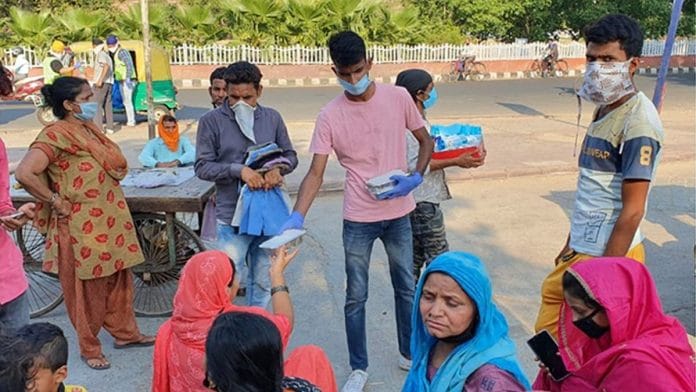With a view to promote and implement global efforts to resolve the issue of food wastage, the United Nations General Assembly in 2019 designated 29 September as International Day of Awareness of Food Loss and Waste. The idea was to take steps towards responsible consumption and production as well as zero hunger, along with working towards addressing the problem of climate change through sustainable food habits.
The first observance of the day, in 2020, comes as the world grapples with the Covid-19 pandemic, which makes it all the more urgent to relook at how our food production, consumption and distribution impacts the environment and the people around us.
Food security has taken a major hit during the Covid crisis, with disruptions in supply chains, closure of schools and the hospitality industry, along with large-scale unemployment given the lockdowns around the world. All of these factors have resulted in the loss of market for both producers and distributors, making it even more challenging to deal with food waste.
In India, a stringent nationwide lockdown was called on 24 March leaving people with barely four hours to prepare for what was initially announced as a three-week lockdown. The lockdown was repeatedly extended over months, and many migrant workers and daily wage earners were severely impacted with no source of income and nothing to eat or feed their families. In this time, a number of civil society members and organisations mobilised to feed people across the country.
How regular Indians stepped up to help
The largest food relief effort during Covid has been the Robin Hood Army’s Mission 30 Million, which aimed to reach 30 million people across 10 countries in Asia. But the Robin Hood Army has, of course, been around for a while. There were many smaller groups that sprang up during the lockdown and for the sole purpose of fighting hunger caused by the pandemic.
Migrant Travel Support, a Delhi-based initiative started by four youngsters in their 20s, helped thousands of migrant workers travel back to their homes across Uttar Pradesh, Bihar and Jharkhand, and provided them with hot meals and packed food for the journey.
The group started work shortly after the lockdown in early April and continued till 15 September, arranging buses and meals for those wanting to go back to their hometowns in the absence of any income and food. One of the core members of the group, Chandrajeet Gupta, told ThePrint that the group arranged more than 12,000 meals for all the migrant workers.
The food was largely procured through an outfit called the Janman Organisation, headed by one of the core members of Migrant Support Travels, Shourya Roy. Aside from organising meals through Janman, the group also raised money through an online fundraising campaign and partnered with various other organisations, such as 100 Rupee Project, which served cooked food to Bihar bound migrant workers.
We would like to thank @MigrantTravel for providing us the opportunity to serve cooked food to the Bihar bound immigrants. Please support them in their endeavours.#ItsTimeForUsToNotLookAway pic.twitter.com/vI33oBbOPK
— 100 Rupee Project (@Rupee100) June 18, 2020
Speaking to ThePrint, Gupta said they provided food at three different points: “Once before all the migrant workers undertook their journey, then packed meals for the way as well as tie-ups with dhabas on the road and then another meal when they reached their destination.”
Another initiative that has worked tirelessly in this area is Khaana Chahiye. Based out of Mumbai, it has worked towards providing meals to daily wage earners who were out of a job during the Covid-19 lockdown. An initiative of Project Mumbai, Litmus Test Project and Bharat Utthan Sangh, it was run by a team of 11 people in Mumbai who took on the task to cook and provide meals to all those in the city. From identifying people who needed food to preparing it to fundraising and delivery, the initiative actively engaged with residents of Mumbai to feed people in need.
People could fill out a form on the website to provide the location and information on how many meals were required and for whom, in which part of the city, and there was also the option of volunteering to cook or become a delivery volunteer, or simply just contribute money for the operations.
Those who volunteered to cook the meals for slum dwellers and daily wage earners in the city were compensated for all the costs they incurred for preparing the meals. Finances were incurred by partners and donors, while the meals were free of cost and comprised daal-rice, vegetables and rotis. The initiative stated, “We’ve ensured the food to be hygienic and nutritious with a calorie count high enough to be sufficient for a day.”
Since its launch on 27 March until mid-September, Khaana Chahiye had built a supply capacity of 75,000+meals a day across the city. They say, “We’re increasing this capacity every day to reduce suffering in this crisis.”






